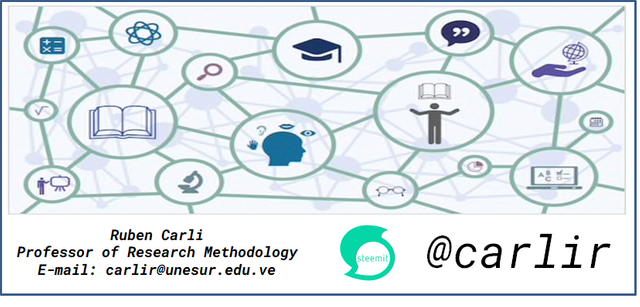
Management is a widely known term within the sciences because man has always sought by its means the recognition of leadership and the imposition of management styles and a specific personality that mark the course of time and times, it is for this reason that the world is experiencing amazing changes that increase and promote every day the participation of the worker, so it requires trained people with high inspiration for improvement and not only personally but also generate changes in everything that is around him.
These reasons, cause an effect in the organizations and is to reflect on the management in any field, since strategies are needed to generate changes aimed at great achievements, thus achieving that every day new business challenges are generated because the demands and perfection are more noticeable, for such effect is that participation has become increasingly common so many organizations employ the use of these strategies that give value to the worker; thus avoiding autocracy and giving subordinates the opportunity to be part of the decision making process, listening to them and thus giving them a vote of confidence.
In this same sense, management could be a discipline that analyzes and describes several strictly fundamental functions that a manager could execute simultaneously or continuously, allowing the realization of decision making in an efficient and truthful way. Although it is true that with the constant changes made by globalization, the conceptualization of the manager has also undergone important and positive changes, because it is not just another boss, but a more involved individual, who performs and influences his leadership within the group, managing to develop its management, so that the objectives of organizations are achieved effectively, using the right tools, being the manager who involves a set of actions to be implemented in a given context in order to achieve an end.

Source
Similarly, Covey (2006), states that management is: the leadership ability to influence, direct, negotiate and make decisions, therefore, they are part of the personality that in turn define the style of the leader, as well as the possibilities to obtain results with a high level of performance. In other words, management can be defined as the system that articulates a set of administrative processes that in turn are reflected in decision making with the purpose of achieving goals and objectives by combining the necessary resources and materials.
This is why management must have true executive and entrepreneurial skills, to combine the needs of subordinates, customers and the administration, requiring vision, pragmatism, aggressiveness, strategic and operational mentality, negotiating skills and a strong sense of commitment to the organization he/she manages. Organizations require more strategic thinking managers than operational ones, hence the need to always think in three dimensions, that is, yesterday, today and tomorrow, talent being the best attribute that every manager must have to be successful and triumphant. Undoubtedly, the above mentioned, denotes that the most notorious and ultra-stable organizations are those that make the most of the resources they have, being these the human talent, taking advantage of their potential and listening to their opinions. This is how in the countries of the world the imminent changes are felt by the reinforcement of democracy and citizen participation, changing old paradigms and at the same time broadening coexistence and modernizing public management.
It is for these reasons that Medina (2011), expresses: In Venezuela participatory management has become more common thanks to new laws and dogmas established by the government where democracy is used more frequently in all areas and for any decision making placing the worker as the basis and fundamental pillar of any entity but however the old paradigms have not been easy to break because the human being has been characterized throughout history as firm and autocratic people who want to conquer the world with their own personality, character and style.

- Covey, S. (2006). Organizational competencies. Mexico Editores, S.A.
- Medina, C. (2011). "Participative management and school-community integration in the basic education subsystem. Level primary education" degree work submitted Faculty of humanities and education LUZ university (University of Zulia).

I have found out that a management system in which everyones input is valued is more progressive than Management's that are authoritative. Nice work @carlir.
Downvoting a post can decrease pending rewards and make it less visible. Common reasons:
Submit
Greetings @whileponderin, that is correct when the opinions or suggestions of the members of the organization are valued things usually go better, authoritarianism does not bring good things although there are times where it is relevant to be authoritarian but only sometimes for a specific situation.
Downvoting a post can decrease pending rewards and make it less visible. Common reasons:
Submit